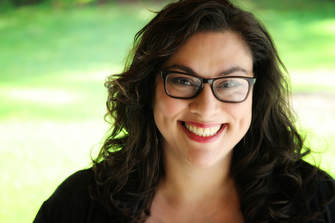Lebanese Prison Drama & Therapeutic Space: Zeina Daccache's Scheherazade' in Baabda
Zeina Salame
Abstract
Zeina Daccache develops social justice theatre projects with marginalized communities through an organization she founded and runs, Catharsis - Lebanese Center for Drama Therapy. Her work with prisoners, in addition to its healing influence on the inmates, has effectively motivated policy change. Daccache sets these productions in the actual prison spaces, inviting the audiences into the world of the imprisoned. She also films a performance of each play and releases the dvd, sharing the product even more publicly and broadening the reach of the work. At a women’s prison in Baabda, she directed a devised storytelling project, Scheherazade in Baabda. In this riveting piece, Daccache makes especially bold use of the prison space as a part of the dialogue, blurring the divisions between insider and outsider, and obliging the audience to consider “the prisoner” as relatable, present, and human. It denounces antifeminist laws and social frameworks responsible for the imprisonment of many women, re-placing these interned storytellers as members of community. In her site-specific work, Daccache calls on the physical limits, boundaries, and instruction of the space of prison to contribute to the stories. By engaging with place and audience in this way, her projects disrupt existing narratives of these sites and of the people living there. Tapping into the politics of space, place, and site through drama therapy, Daccache presents the stories of “people with something in their gut, something concrete to say,” generating productions that make more concrete the identity of the prison itself, and what it means to be imprisoned, calling for and inspiring dramatic social change (12 Angry Lebanese 103).
Zeina Daccache develops social justice theatre projects with marginalized communities through an organization she founded and runs, Catharsis - Lebanese Center for Drama Therapy. Her work with prisoners, in addition to its healing influence on the inmates, has effectively motivated policy change. Daccache sets these productions in the actual prison spaces, inviting the audiences into the world of the imprisoned. She also films a performance of each play and releases the dvd, sharing the product even more publicly and broadening the reach of the work. At a women’s prison in Baabda, she directed a devised storytelling project, Scheherazade in Baabda. In this riveting piece, Daccache makes especially bold use of the prison space as a part of the dialogue, blurring the divisions between insider and outsider, and obliging the audience to consider “the prisoner” as relatable, present, and human. It denounces antifeminist laws and social frameworks responsible for the imprisonment of many women, re-placing these interned storytellers as members of community. In her site-specific work, Daccache calls on the physical limits, boundaries, and instruction of the space of prison to contribute to the stories. By engaging with place and audience in this way, her projects disrupt existing narratives of these sites and of the people living there. Tapping into the politics of space, place, and site through drama therapy, Daccache presents the stories of “people with something in their gut, something concrete to say,” generating productions that make more concrete the identity of the prison itself, and what it means to be imprisoned, calling for and inspiring dramatic social change (12 Angry Lebanese 103).
| etudesjan2018salame.pdf | |
| File Size: | 267 kb |
| File Type: | |


